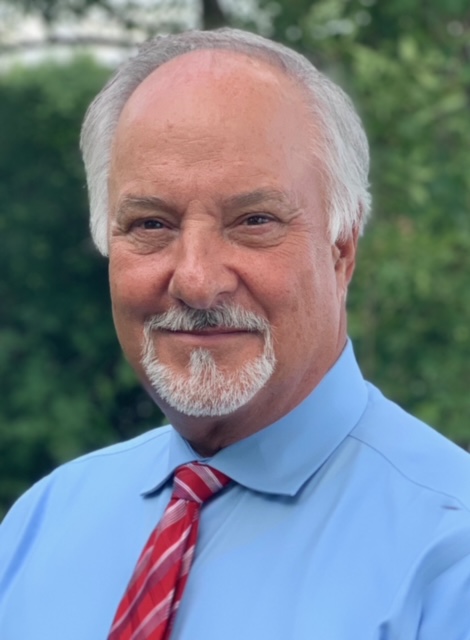By Bill Barth
- Download this column as a Word document
- Download headshot
Call it a homecoming.

Before there were European settlers arrived in south central Wisconsin. Before the first cabins were raised. Before the first plow turned the soil. Before a state line artificially divided the land.
The Ho-Chunk people were here.
And now they are here again to invest more than $400 million in a Beloit entertainment complex just north of that state line. When completed – plans target 2027 – the site will include the large casino, a premier conference center and the tallest building in Rock County, an 18-story hotel.
Groundbreaking ceremonies on October 25 attracted a large crowd, including many Ho-Chunk dignitaries and officials who have worked for years to achieve this day. Onlookers were treated to tribal dance and drum ceremonies, to remarks in both the Ho-Chunk language and English, and many moving moments recounting historic ties to the region.
Like many attendees, I’m sure, I felt a flood of emotions. I have read stacks of books on America’s westward expansion, both east and west of the Mississippi River, and its impact on the people who already lived here. As a kid I was taught all about the fledgling nation’s sense of “Manifest Destiny” and its inexorable march to become a continental nation.
Further reading, in adulthood, informs one of an inconvenient fact glossed over in the textbooks of our youth. This was not an empty continent. The people who were here were considered in the way of settlers’ westward flow. They were treated horribly. Documents still exist in which the government and military openly advocated for the extermination of native peoples. Whether removed by force, or through treaties never intended to be honored, the ancient native cultures were shoved aside.
Ho-Chunk President Jon Greendeer referenced history during groundbreaking ceremonies, proudly noting that his people had persevered, had not disappeared, and still retained their language and their connections to ancestral lands.
The Beloit area should welcome their return. They are not interlopers. They are the neighbors we never knew.
On a personal note, I find it particularly gratifying to have been on hand for the official beginning of the construction phase for the Ho-Chunk project. It’s not exaggerating to say this is one of the longest-running stories experienced over the course of my career as a journalist. It’s also true that the newspaper where I worked, the Beloit Daily News, never wavered in its support for tribal development.
I have clear memories – dating back to the 1990s – of when the newsroom first caught wind of a rumor that a Wisconsin band had interest in locating a casino in the region, with hopes of capturing the Chicago crowd. The idea seemed fanciful but we chased the story anyway and, by golly, it was true.
Like everyone else, I suppose, folks at the paper had no idea just how complicated the process would be to site an off-reservation casino. Years, maybe? No, decades. Astonishing.
First came the Bad River band of Chippewa. Turns out the Bad River – good folks, by the way – lacked resources and political clout. Then came a partnership between the Bad River and the St. Croix Chippewa. A more realistic chance, but in the end no-go.
As a news organization we did our due diligence. I dispatched reporters across Wisconsin to visit other communities where casinos already existed. They talked to residents. Business owners. Chamber of Commerce directors. Law enforcement leaders. Political office-holders. We couldn’t find anybody anywhere with a bad opinion of the relationship with the various tribes or the impact of the properties.
Politics played an oversized and often prejudicial role. In Wisconsin, we discovered the plan’s fate largely depended on who was governor. That was Tommy Thompson when casino talk first began. I interviewed him in his Capitol office, where he told me he would not block a Beloit casino but intended to drive a hard bargain to bolster state revenue. The plan never landed on his desk.
Two-term governor Jim Doyle got so tired of being asked about the casino that he would preemptively say “nothing new” before getting the question during his regular visits to our newsroom. When Scott Walker – I once dubbed him “The Reverend Walker” in an editorial about the casino – served eight years as governor it was obvious he had moral objections and the plan was going nowhere while he held office.
Then came Tony Evers. One of the first questions we asked him as a candidate for governor was whether he would sign a casino deal if it landed on his desk. His simple answer: Yes. And he did.
Let’s not even bother with the mess in Washington, where the Beloit plan struggled to get a fair hearing for years.
For many – including me – over the decades optimism faded. Even after the apparent green light, I told folks when I saw shovels in the ground I would believe it.
Shovels are in the ground.
Believe it now.
Beloit is different today than in the 1990s. Beloit is prospering and is no longer desperate for a big investment. Today, the casino complex is just another growth opportunity and entertainment option.
And, sure, there are still folks with moral objections who wish this wasn’t happening. They’re entitled to their opinion and I respect it. My roots, though, are libertarian (small l on purpose), forged on the farm, with a firm belief that one person has no right to determine what another person chooses to do.
I also recall my late father’s thoughts. Raised a Roosevelt Democrat, growing more conservative as he aged, Dad had this view on tribal casinos. “Indians have been screwed in this country forever. If they can figure out a way to get some money out of White people, good for them.”
Plain country language.
True.
Welcome back to Beloit, our Ho-Chunk brothers and sisters.
Bill Barth is the former Editor of the Beloit Daily News, and a member of the Wisconsin Newspaper Hall of Fame. Write to him at bbarth@beloitdailynews.com.


